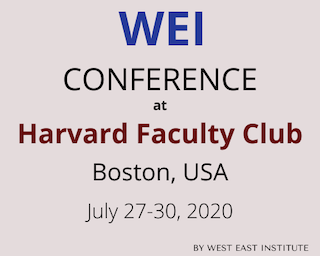Heritage Tourism Promotion Through Marketing Philosophy
Abstract
Destination image has been defined as an individual’s mental representation of knowledge (beliefs), feelings and overall perception of a particular destination (Crompton, 1979a; Fakeye& Crompton, 1991). World Heritage Sites belong to all people of the world, irrespective of the country in which they are located. It is a universal application what makes the concept of world heritage exceptional. This has been declared in the Convention on the Protection of World Cultural and natural Heritage of UNESCO in 1972. As travellers become more sophisticated, destinations need to become more originative in capturing those tourists. A potential tourist destination needs to create a brand image to compete in the global tourism marketplace. The methodology is based on available secondary and primary data from government bodies of India and relevant international organisations, several factors are identified that affect the implementation of marketing philosophy in area of Heritage Destination Tourism. Important initial measure would improve coordination in order to achieve more Tourist-friendly destination. Marketing philosophies cannot be understood simply but can create platform for defining business objectives and strategies, and creation of tourist products which deliver unique experience to tourist and generate profit for heritage tourism destination. It is an initiative to look over the ultimate Sources of heritage marketing – is it well worth?
Metrics
Copyright (c) 2022 Mukesh Ranga

This work is licensed under a Creative Commons Attribution 4.0 International License.
Copyright Holder: The West East Institute as publisher allows authors to hold the copyright of their work without any restrictions and also allows them to retain the publishing rights without restrictions.
Author Self-Archiving Policy: This journal permits and encourages authors to post items submitted to the journal on personal websites or institutional repositories both prior to and after publication while providing bibliographic details that credit, if applicable, its publication in this journal.



_copy1.png)
1.png)
2.png)

